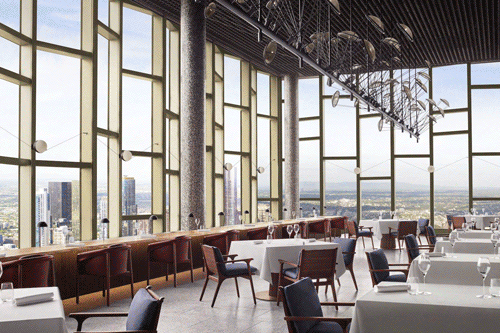Melbourne becomes the country’s largest hotel market

Melbourne is now Australia’s largest hotel market according to JLL’s Hotel Market Report.
An “unprecedented” building boom has delivered nearly 5000 new hotel rooms since 2020 in Melbourne, seeing it leapfrog Sydney as the most prolific city.
Prior to the pandemic Sydney offered 21,634 rooms to Melbourne’s 21,597.
Since then, Melbourne has produced the Ritz Carlton, Hilton and W hotels, and increased its accommodation market by 23 per cent to almost 26,500 rooms.
In contrast, Sydney has added 13 hotels and 2159 rooms, taking its total room count to just under 23,800 rooms, an increase of 10 per cent on 2019 levels.
There are a further 1800 hotel rooms under constructions in both cities, which will push Melbourne to almost 27,500 rooms and Sydney to 24,400.
JLL Hotels managing director Peter Harper said availability of land and a less challenging planning system was behind Melbourne’s growth which is also now denser in population.
“Many of the new hotels introduced in Melbourne have also formed part of mixed-use developments, where the primary driver of these projects have been residential use, owing to Melbourne’s strong population growth and undersupply of apartments,” Harper said.
Adelaide and Gold Coast have also expanded their accommodation offering.
Sydney does come out on top when it comes to investor and operator perspectives, recording an average occupancy rate of 74.2 per cent and an average daily rate of $262 translating into revenue per available room of $194, the highest in the country and up 49 per cent year-on-year.
Melbourne’s occupancy of 67.5 per cent and $225 over the same period, equates to $152, up 37 per cent year-on-year.
There is great attraction to Melbourne said Richard Crawford, vice president of hotel development in Australia, NZ and Pacific for Marriott
“Melbourne has a proven track record of successfully absorbing new hotel supply, due to the size of the market and the breadth of travel segments drawn to the city,” Crawford told The Australian Financial Review.
“Melbourne attracts a powerful mix of business, leisure and event-based travellers, who sustain a robust year-round visitor economy. And, with Greater Melbourne now Australia’s most populous city, the visiting friends and family market is another key travel segment.”
Hotel developer Mohan Du of Capital Alliance mirrors the sentiment. The group has completed four new hotels in Melbourne’s Docklands since 2016 and has just been approved for two more hotels and a 1000-person convention centre in a $340 million development.
Accor has also been expanding its presence in Melbourne.
Sarah Derry, Pacific CEO of hotel giant Accor called Melbourne an “incredibly appealing destination for hotel operators and investors.
“Melbourne has a robust and growing tourism industry, with a steady increase in visitor numbers year after year.
“Overall, the combination of Melbourne’s attractive cultural offerings, strong tourism industry and excellent infrastructure make it an attractive destination for hotel operators and investors seeking long-term growth and success.”
JLL expect the growth across the country to continue.
“We anticipate the hotel investment market will remain robust and active over the short term, with transaction volumes projected to exceed $2.2 billion for the full year, despite the current macroeconomic headwinds and challenges surrounding investment underwriting.”
Jonathan Jackson, 2nd August 2023







